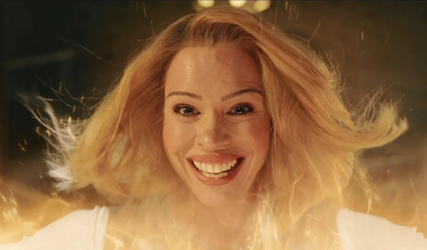
Billie Piper as the 16th Doctor in 'Doctor Who'
BBC Studios
“The Reality War,” the finale of the 15th season of Doctor Who, saw Ncuti Gatwa exit the role of the Doctor, regenerating into Billie Piper, who previously appeared in the series as the Doctor’s companion.
Fans of the show were shocked at the reveal, as recasting a former companion as the Doctor was a first for the long-running sci-fi series.
The Doctor has been played by a total of 16 different actors across the show’s 60-year history, with each new actor introduced via “regeneration.”
Why Does The Doctor Regenerate?
Doctor Who is an interesting example of a sci-fi story offering viewers an in-universe explanation for the inevitable recasting that occurs during a multi-decade series.The Doctor is a member of an ancient alien race known as the Time Lords, who have the ability to regenerate into a fresh body when fatally wounded, imbuing them with a new personality and appearance.
Canonically, Time Lords are limited to 12 regenerations, but of course, the Doctor was granted an exception, so that the series could continue.
The ability to regenerate can result in a Time Lord changing race and sex, and the Doctor’s recent regenerations have introduced more diversity to the series, but the show’s latest regeneration proved controversial with fans.
The backlash wasn’t some tedious culture war bickering, but a debate over canon, nostalgia and the future of the show.
Why Was Billie Piper’s ‘Doctor Who’ Casting So Controversial?
“The Reality War” sees Ncuti Gatwa’s Doctor regenerate into Billie Piper, who first appeared in the series as Rose Tyler.Rose was the Doctor’s companion between 2005 and 2013, during the eras of Christopher Eccleston and David Tennant, who both played the Time Lord.
Many fans viewed the recasting of a previous companion as a desperate move motivated by nostalgia.
One commentator even explained the casting through the lens of Spider-Man, so outsiders could understand the controversy.
The discourse sparked a discussion about what kind of audience is still watching Doctor Who today, with some asserting that children are no longer the main audience of the series.\
Other commentators were disappointed to see Gatwa’s time as the Doctor end so abruptly. Gatwa’s Doctor was unusually short-lived, lasting a mere 18 months, and the actor never got to see his Doctor face off against the series' most iconic villains.
Some viewed the modern Doctor Who regenerations as too frequent, with actors leaving the show before they could truly leave their mark on the role.
Many comparisons were made to the MCU recasting Robert Downey Jr. as Doctor Doom, a movie which was widely viewed as a gimmick among Marvel fans.
Some fans even suspected that there was more to the story, and that Piper’s casting was a red herring, noting that Piper was not officially introduced as the Doctor in the show’s credits.
“Just how and why she is back remains to be seen,” the BBC said in a suspiciously vague statement after the finale aired.
“It’s an honour and a hoot to welcome her back to the TARDIS, but quite how and why and who is a story yet to be told,” showrunner Russell T. Davies said.
Despite the controversy, Piper sounded optimistic about her new role, saying that the opportunity to "step back on that TARDIS one more time was just something I couldn't refuse.”
Article Link
Archive